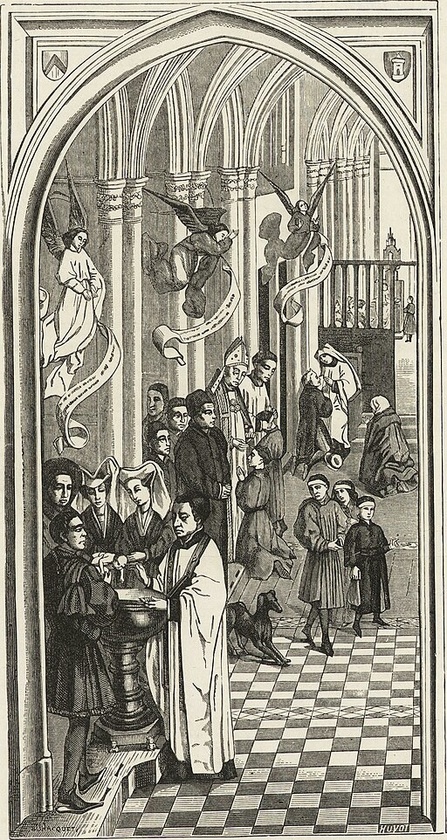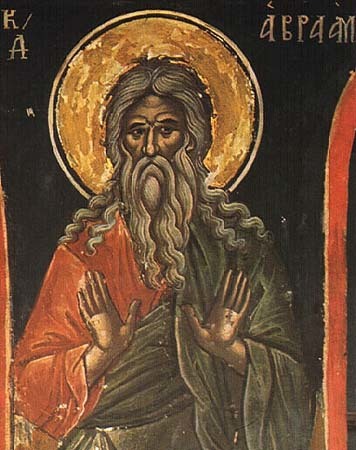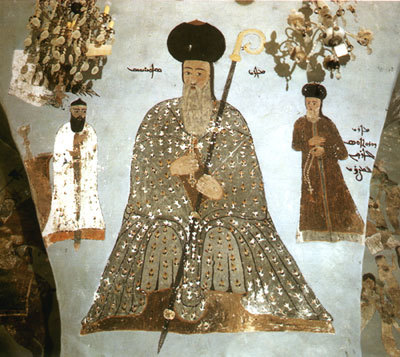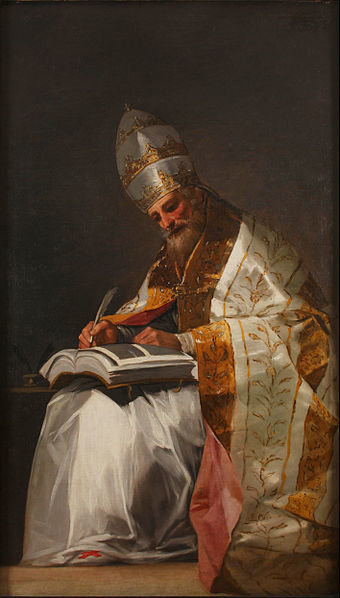Someone posted on FB asking how the many statements in Pope St. Gregory the Great decrying the idea of a universal bishop can be reconciled with the ecclesiology of Vatican 1 (1870). I responded by saying that Gregory's thoughts are not always consistent, and need some reconciling.
Introducing CCT for Locals
The following is a response to an Evangelical who said the following:
<<In fact, there is nothing definitive in the historical record that speaks to the regular baptism of babies until the middle of the 3rd century. >>
It is a bit painful to see this statement being made without further comment. Though there is doubt as to its origin being "Roman", many scholars would date the Apostolic Tradition, often attributed to Hippolytus of Rome, to the beginning of the 3rd century. I understand the recent scholarship on this (c.f. Bradshaw, Johnson, Phillips, et. al.), but it remains conventional to see this as an early 3rd century compilation. I think a good defense of it being both Roman and early 3rd century (and perhaps even prior) is given by Alistair Stewart, a leading scholar of Christian liturgical origins, in vol. 54 of the Popular Patristic Series put out by St. Vladimir's Seminary Press. I won't go into those arguments here, nor will I defend them. I would just add that the AT makes it pretty clear that children, ...

Abraham's belief in God's promise is a God-pleasing virtue that includes, therefore, a formation of charity and hope towards God. It constitutes a faith that, for the ungodly, is a repentant faith. For the saint, a firm commitment to persevere with God's plan over and against falling to the temptation to go one's own way. Therefore, the faith of Abraham does indeed serve to be an interior sanctity that God recognizes as the "obedience of faith". Nevertheless, God credits more to Abraham than what his faith gives to God. We have to keep in mind that St. Paul sees in the justification act upon Abraham the justification of a man who is, whatever else might be said that was praiseworthy up to this point (Rom. 4:18-22), ungodly. Therefore, in the imputation of Abraham's faith as righteousness, something of a merciful grace is being applied. He is not just recognizing the value of Abraham's faith as meriting justification, i.e., the remission of sins and the sanctifying renewal of the interior ...

"For you said excellently and rightly that these teachers are not opposed to each other, just as Paul and James are not, with one saying that a human being is justified by faith without works [Gal. 2:16, Eph. 2:8-9], while the other writes that faith without works is dead [Jas. 2:26]. For Paul spoke of the faith that precedes baptism, which requires only the consent of the whole heart to the confession, without its being preceded by a life of good works, a faith that justifies all that partake in some way of evil, when in the divine laver of regeneration he confesses his faith that comes from instruction. James, on the other hand, speaks of the faith that follows baptism, that it is dead if one possesses it without works, that is, if one does not confirm it by deeds of justice. For baptism is the pledge of a life ordered to the good... But we can easily draw a solution form the divine scriptures. For it is the one Abraham who at distinct times is the image, now of one faith, now of the other, of...














